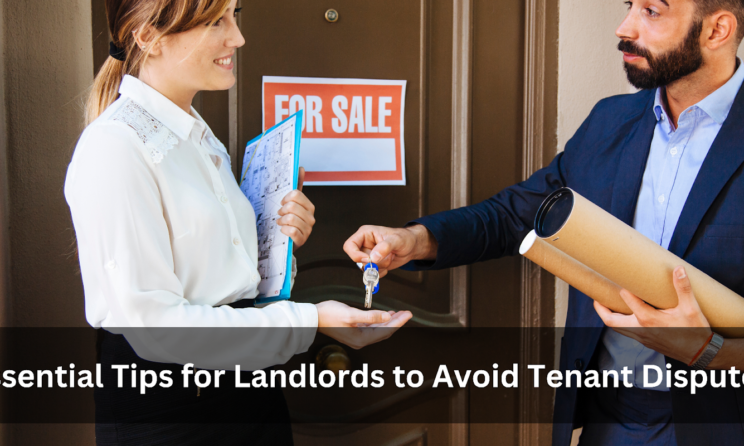
Being a landlord comes with its own set of challenges and responsibilities. One of the most common issues landlords face is tenant disputes, which can be both time-consuming and costly. To maintain a successful and harmonious landlord-tenant relationship, it’s crucial to proactively prevent disputes from arising. In this article, we will provide you with essential tips and strategies to help landlords avoid tenant disputes effectively.
Table of Contents
- Understanding the Importance of Clear Communication
- Thorough Tenant Screening Process
- Creating Comprehensive Lease Agreements
- Routine Property Inspections
- Promptly Address Repairs and Maintenance
- Respect Tenant Privacy
- Follow Legal Procedures for Rent Increases
- Handling Security Deposits Fairly
- Maintaining Property Safety
- Handling Complaints and Grievances
- Seeking Professional Legal Advice
- Document Everything
- Encourage Community Building
- Consistent Enforcement of Rules
- Regularly Review Landlord-Tenant Laws
Understanding the Importance of Clear Communication
Effective communication is the foundation of any successful landlord-tenant relationship. Establish open lines of communication from the beginning and encourage tenants to share their concerns and questions. Respond promptly and address any issues in a respectful and understanding manner.
Thorough Tenant Screening Process
Invest time and effort in a comprehensive tenant screening process. Verify potential tenants’ rental history, employment status, and conduct background checks to ensure they are financially responsible and reliable.
Creating Comprehensive Lease Agreements
Draft detailed lease agreements that clearly outline the terms and conditions of the tenancy. Include information about rent, security deposits, maintenance responsibilities, and rules regarding pets and smoking.
Routine Property Inspections
Regularly inspect the property to identify and address maintenance issues promptly. This proactive approach can prevent minor problems from escalating into major disputes.
Promptly Address Repairs and Maintenance
Handle repair and maintenance requests promptly and efficiently. A well-maintained property leads to satisfied tenants and reduces the likelihood of disputes.
Respect Tenant Privacy
Respect your tenant’s privacy rights. Provide ample notice before entering the property for inspections or repairs, except in cases of emergencies.
Follow Legal Procedures for Rent Increases
If you plan to raise the rent, follow the legal procedures outlined in your local landlord-tenant laws. Provide sufficient notice and ensure the increase is reasonable and justifiable.
Handling Security Deposits Fairly
When the tenant moves out, assess the property’s condition and return the security deposit within the timeframe mandated by the law. Deduct only for legitimate damages, as clearly defined in the lease agreement.
Maintaining Property Safety
Ensure that the property meets all safety standards and regulations. This includes working smoke detectors, well-lit common areas, and compliant fire exits.
Handling Complaints and Grievances
Create a transparent and straightforward process for handling tenant complaints and grievances. Show genuine concern and work towards resolving issues amicably.
Seeking Professional Legal Advice
If you encounter complex legal issues or disputes, seek advice from a qualified attorney specializing in landlord-tenant law. This can help you navigate legal complexities and protect your interests.
Document Everything
Maintain meticulous records of all interactions with tenants, including lease agreements, repair requests, and notices served. These documents can serve as vital evidence if disputes arise.
Encourage Community Building
Promote a sense of community among your tenants. Organize occasional gatherings or social events, fostering positive relationships among tenants.
Consistent Enforcement of Rules
Enforce property rules consistently and fairly for all tenants. This shows impartiality and prevents potential conflicts.
Regularly Review Landlord-Tenant Laws
Stay updated on local, state, and federal landlord-tenant laws. Familiarize yourself with the changes and ensure that your policies align with the current legal requirements.
Conclusion
By following these essential tips, landlords can create a harmonious and stress-free environment for both themselves and their tenants. Clear communication, proactive maintenance, and adherence to legal procedures are fundamental in preventing tenant disputes. Remember, maintaining a positive landlord-tenant relationship not only reduces conflicts but also contributes to the long-term success of your rental property.
FAQs
Can I raise the rent whenever I want?
No, you must follow the legal procedures for rent increases, which typically include providing proper notice and adhering to local regulations.
Can I enter the rental property without the tenant’s consent?
Except in emergencies, you must provide advance notice and obtain the tenant’s consent before entering the rental property.
What should I do if a tenant refuses to pay rent?
Address the issue promptly by discussing the matter with the tenant and understanding the reason for non-payment. If necessary, seek legal advice to handle the situation appropriately.
What can I deduct from the security deposit upon the tenant’s move-out?
Security deposits can be used to cover damages beyond normal wear and tear. Ensure you document the condition of the property before move-in and after move-out to justify deductions.
Is it essential to have a written lease agreement?
Yes, a written lease agreement provides clarity and protects both the landlord and the tenant by outlining the terms and conditions of the tenancy.





